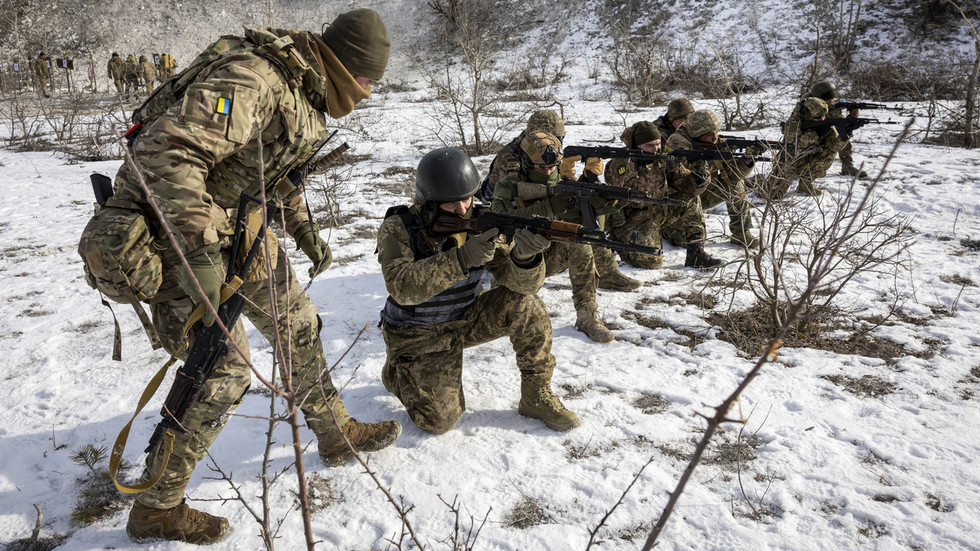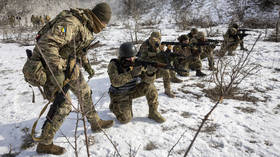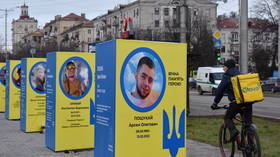
The term ended up in the spotlight as MPs in Kiev are reviewing controversial measures to call up more soldiers to fight Russia

FILE PHOTO: A Ukrainian Army officer instructs replacement troops. © John Moore / Getty Images
The word ‘mobilization’ has been declared the word of the year amid Kiev’s attempts to replenish battlefield losses and its plans to call up an additional 500,000 conscripts, according to a Ukrainian web dictionary MySlovo.
In a post published on Friday, the lexicon said that the choice hinged on the word being “at the center of public debate” fueled by a “controversial mobilization bill” submitted to the parliament in late December.
The legislation in question proposes lowering the mobilization age from 27 to 25, eliminating exemptions for some categories of disabled people as well as introducing harsher measures against draft dodgers.
MySlovo also noted that ‘mobilization’ had taken the lead over the word ‘counteroffensive’ – a reference to Kiev’s much-hyped push that started in early summer but failed to gain substantial ground. The authors of the post also pointed out that the latter word “unfortunately received far more media support than logistics and, as a result, brought more frustration than visible results.”

Read more
Another counteroffensive-related collocation on the list was ‘Summer in Crimea,’ an allusion to comments by Kirill Budanov, the head of Ukraine’s military intelligence. The official promised on several occasions that Kiev would seize the Russian peninsula, but it did not come to pass.
Other notable mentions also harked back in one way or another to the ongoing hostilities, including ‘draft dodger,’ ‘positional war,’ and ‘drone.’ A collocation, ‘eggs for 17 hryvnias ($0.45) each,’ also made it to the list, an apparent reference to a corruption scandal in the Ukrainian Defense Ministry, which allegedly procured various foodstuffs at exorbitant prices.
The word ‘blockade’ also proved to be quite popular both in the context of Russia’s naval operations on the Black Sea and Polish haulers and farmers’ protests on the border between the two states. The latter have opposed EU regulations they felt gave unfair advantages to their Ukrainian counterparts.
The only word not directly associated with the conflict was ‘AI’ (artificial intelligence), although the dictionary suggested that its presence was “related to the integration of AI into military systems.”
Ukraine announced mobilization in February 2022 shortly after the start of the conflict with Russia, with the recruitment drive marred by corruption and draft dodging. However, during its counteroffensive, Kiev started actively mulling new measures to call up more soldiers in mid-2023. According to Moscow, Ukraine has lost around 160,000 troops since the start of the botched push in early June.




